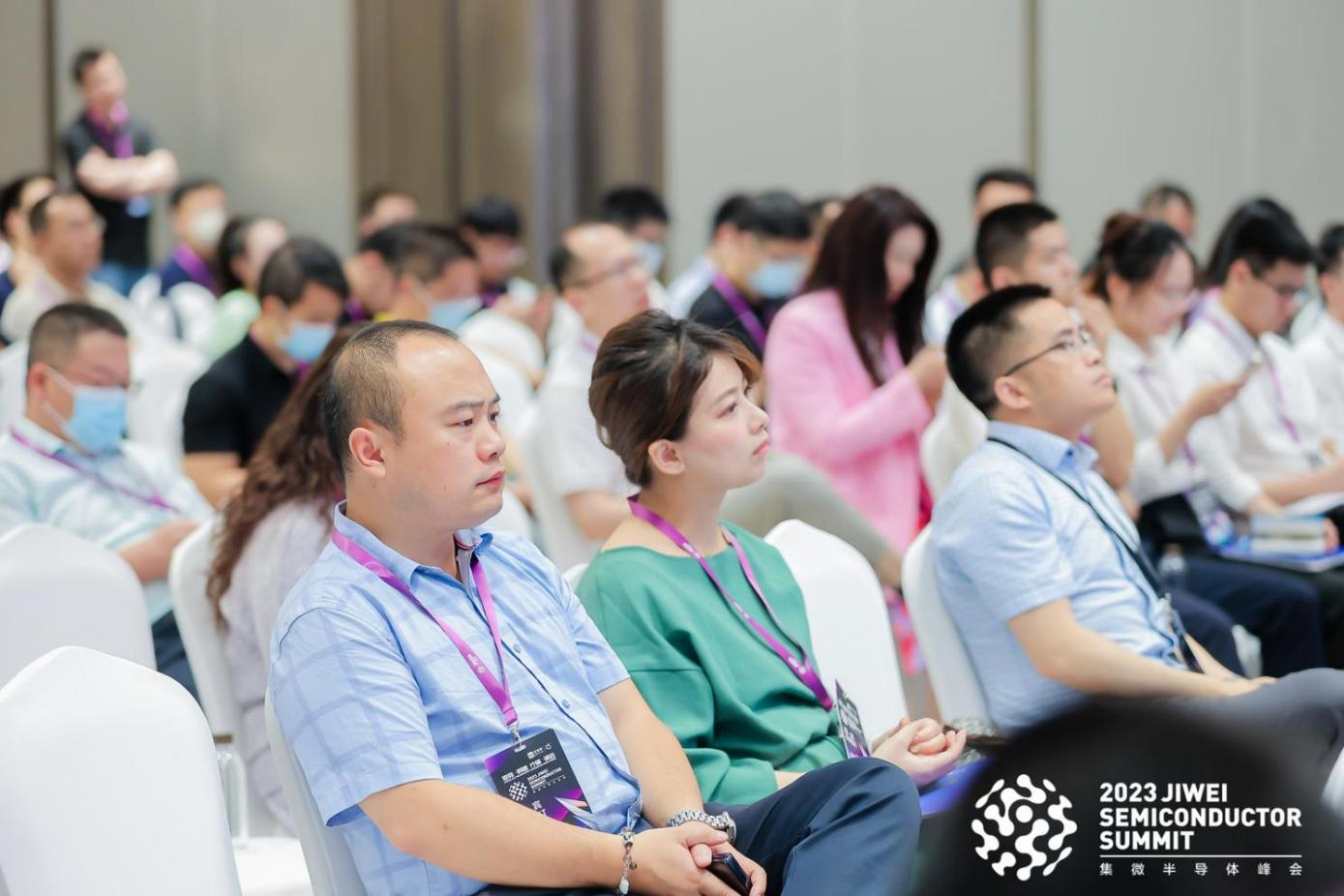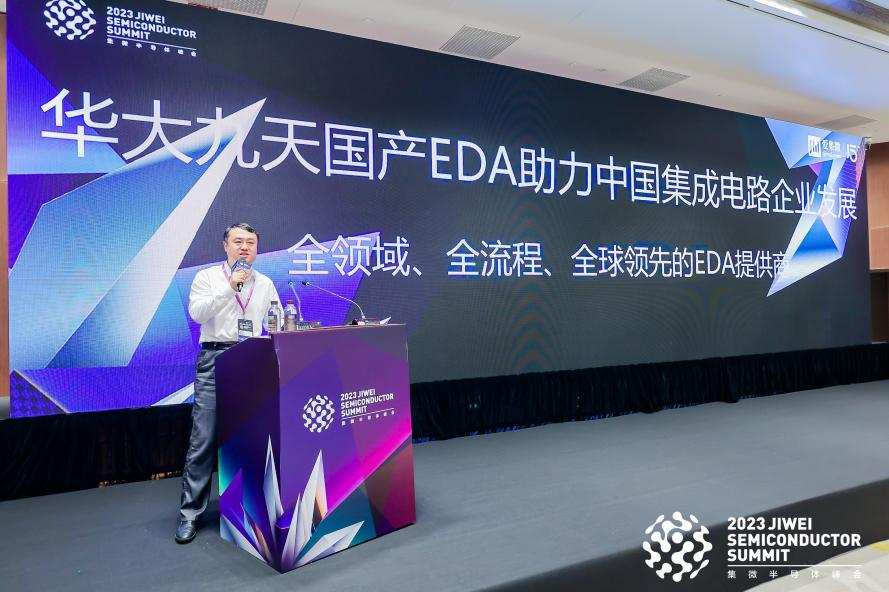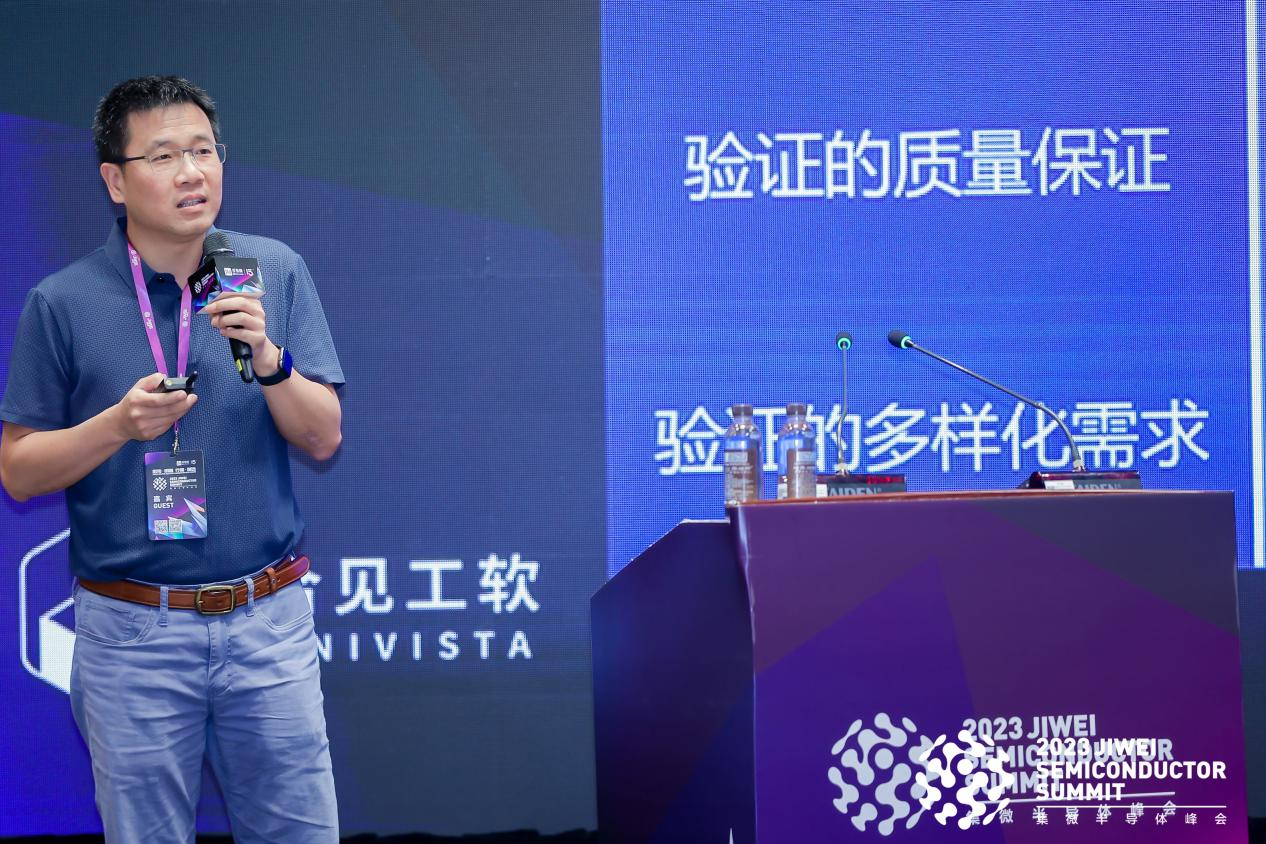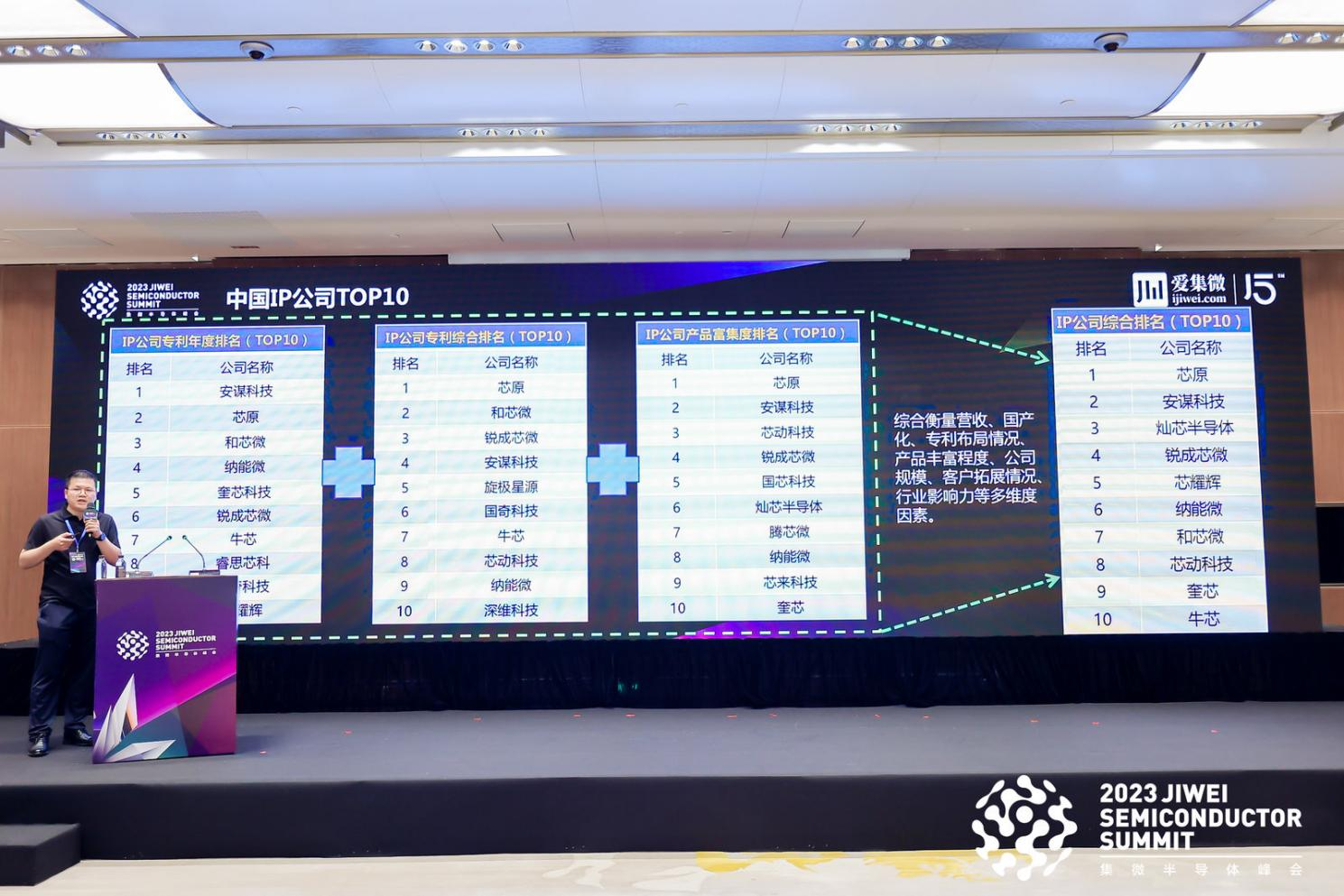
By Greg Gao
(JW Insights) Jun 8 -- Attendants to the JiWei EDA-IP-Industrial Software Summit held on June 2 in Xiamen, listened to the latest technological updates and discussed the dynamic convergence of AI and EDA in chip design.

The presenters included representatives from from leading EDA firms such as Empyrean Technology(华大九天), UniVista(合见工软), Cadence, Dexin(德信德胜科技), Shanghai LEDA Technology(上海立芯), Arm China, Bosch China.
Professors from the Guangdong University of Technology and Xidian University, along with senior analysts from JW Insights, also delivered their insightful reports.
Currently, there is a continuous emergence of new applications such as artificial intelligence, 5G communication, big data, and cloud computing. The trend has led to an increase in the complexity of chip functionality, thereby presenting new requirements for integrated circuit design tools and platforms.
The trend also leads more IP reuse.
EDA giant Synopsys updated its solutions this year, following its launch of DSO.ai, the industry’s first AI-supported chip design solution in 2020, which covers design, verification, testing and analog circuit design stages, accelerated integration of EDA and AI.
China’s domestic EDA players are also speeding up to catch up in this field, exploring to apply AI in EDA. Yu Han, senior director at China’s leading player Empyrean Technology, pointed out that EDA industry’s entire development is characterized by oligopoly and high technical barriers; it is a typical basic industry with a long investment cycle and slow effects. It requires the establishment of an industrial ecosystem and full support from the upstream and downstream of the industry chain. EDA development relies highly on talent, and mergers and acquisitions are important means of industry advancement.

Sun Xiaoyang, vice president of product engineering at UniVista, another Chinese EDA startup, pointed out that EDA tools are indispensable in high-end chip design, and verification EDA tools that span the entire chip design process are of great importance. Leveraging its self-developed core products, UniVist has engaged in mergers, acquisitions, and investments in alignment with its product and market strategies.

Sun emphasized that his company hopes to collaborate closely with the upstream and downstream players of the industry chain, enhancing domestic EDA capabilities.
Wang Zhengsuan, senior AE manager at US giant Cadence, explained more on the company’s AI-driven Verisium platform, and how to optimize verification workloads, improve coverage, and accelerate bug tracing through the utilization of big data.
Yuan Debin, CEO of Beijing Dexin, said that China’s semiconductor companies are facing a series of challenges in reducing costs and increasing efficiency. Looking forward to the future, Yuan expressed his company’s commitment to deepening their presence in the integrated circuit field. Additionally, it will expand into the broader semiconductor industries, such as photovoltaic semiconductors and LED.

JW Insights analyst Wang Yongpan,said in his report that overall, China’s domestic EDA/IP companies are still in the early stages of development, with only about 20% of them achieving revenue exceeding RMB100 million($14 million). Most companies are still at a revenue level of tens of millions of RMB, and still have a long way to go in both product range and market competitiveness.








